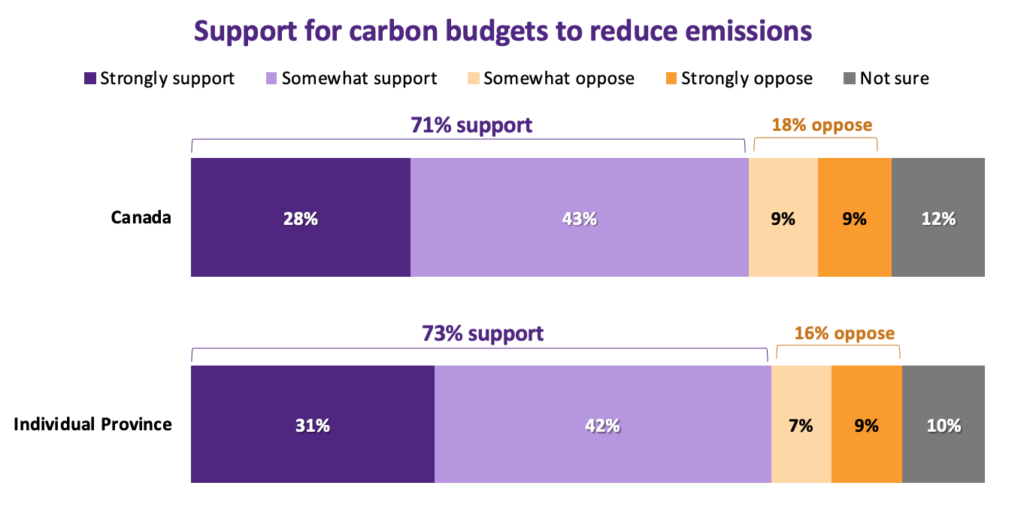A new report from the Canadian Climate Institute warns that the costs of climate change for Canada are massive and mounting, and recommends substantial increases in adaptation investment and enhanced climate risk disclosure to build resilience and limit damages. In light of the federal government’s fall economic statement, the need to plan for and limit foreseeable and manageable future costs is even more clear.
The Institute’s comprehensive analysis of historical trends found that weather-related disasters like floods, storms and wildfires are getting more frequent, more extreme and more expensive—already adding up to billions of dollars each year. Since 2010, the costs of weather-related disasters and catastrophic events have amounted to about 5 to 6 per cent of Canada’s annual GDP growth, up from an average of 1 per cent in previous decades.
However, the report, Tip of the Iceberg: Navigating the Known and Unknown Costs of Climate Change for Canada, also reveals that only a fraction of climate change-related costs can be accurately quantified today, and that unknown costs may far exceed those that are understood. While reducing emissions in line with Canada’s climate targets remains critical to limit future damages, it won’t be enough to shield Canadians from the costs—known and unknown—of climate impacts already in motion.
Addressing and preparing for the impacts of a changing climate and building Canada’s resilience through climate change adaptation could help keep many of these costs in check. The report recommends governments and financial regulators systematically increase public and private-sector disclosure and transparency about the risks of a changing climate in decision making, to drive resilient investments and adaptation solutions. The Institute also recommends significantly increasing public funding for adaptation measures that improve resilience, and co-ordinating climate change adaptation efforts across provincial, territorial, Indigenous and municipal governments to scale up adaptation.
Without such measures, the report finds, catastrophic losses from weather-related disasters could rise unsustainably. Insured losses for catastrophic weather events totalled over $18 billion between 2010 and 2019, and the number of catastrophic events was over three times higher than in the 1980s. Meanwhile, the average cost per disaster has jumped 1250 per cent since the 1970s; a typical storm or flood that cost roughly $8 million in the early 1970’s now costs over $110 million.
The report finds damages from more drawn-out climate change impacts, such as sea-level rise and permafrost thaw, could also increase substantially. For example, permafrost thaw in the Northwest Territories’ 33 communities is estimated to rack up $1.3 billion in costs over the next 75 years, equivalent to about 25 per cent of current territorial GDP. Further, without adaptation, accelerating climate change will increasingly impact health, ecosystems and Indigenous rights, lands and practices in ways that are harder to quantify in economic terms, yet remain highly consequential.
QUOTES
“One lesson Canada must learn from the global pandemic is that we need to get much better at foreseeing and acting on risk. As climate change accelerates, no individual, province or sector will be immune. Now more than ever, we cannot afford to ignore massive future costs—especially those that we have the power to manage. We can limit our risk exposure and make better decisions by investing in resilience and mandating climate risk disclosure.”
Kathy Bardswick, President, Canadian Climate Institute
“Canada has largely left the potential of climate change adaptation untapped. Not only are we more exposed to risk than necessary, we’re also missing out on significant returns that come from investing in resilience. We have the opportunity to proactively reduce some of our most critical climate-related risks—from urban flooding, to crop-killing droughts, to deadly heatwaves. Analysis shows that investing in well-designed climate adaptation measures before disasters strike can provide impressive returns by preventing damages and avoiding social and economic disruption.”
Dave Sawyer, Principal Economist and lead report author, Canadian Climate Institute
KEY FACTS
- Since 2010, the costs of weather-related disasters and catastrophic events have amounted to about 5 to 6 per cent of Canada’s annual GDP growth, up from an average of 1 per cent in previous decades.
- Insured losses for weather-related disasters in Canada totalled over $18 billion in the past decade, doubling the total of the previous three decades.
- Since 2010, the average cost per weather-related disasters totalled $112 million, up from $8.3 million in the 1970s—a staggering 1250 per cent jump.
- The Fort McMurray wildfires were the single most costly weather event in Canadian history, racking up almost $11 billion in terms of property and infrastructure damage, and losses from business disruption. The resulting hit to the economy was equivalent to 3.5 per cent of Alberta’s GDP or about 1.5 years of lost provincial economic growth.
- 1.8 million households are estimated to be at high risk of flooding—10 per cent of all households nation-wide.
WEB PAGE |
DOWNLOAD THE REPORT |
CONTACT
Catharine Tunnacliffe
(226) 212-9883

